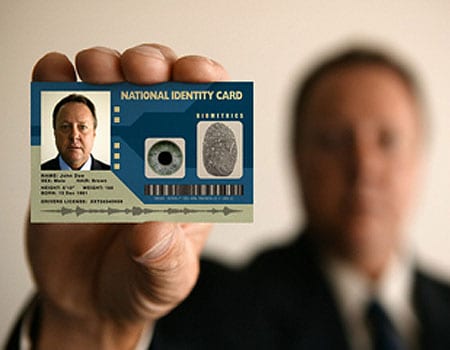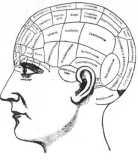Identity cards will be scrapped under plans announced by the new Conservative and Lib Dem coalition government, new Home Secretary Theresa May has said.
Their abolition is among measures the parties have agreed to reverse what they say was "the substantial erosion" of civil liberties in recent years.
Other proposals include reforms to the DNA database, tighter regulation of CCTV and a review of libel laws.
Labour claims ID cards help tackle benefit fraud and identity theft.
The Tories and Lib Dems have both opposed ID cards from the outset, arguing they are expensive, intrusive and have done little to tackle the most serious threats to society such as terrorism and organised crime.
In a statement, the Home Office said it would announce "in due course" how the process of rescinding ID cards and the accompanying National Identity Register would move forward.
Until Parliament passes legislation banning them, ID cards remain valid and people can still apply for them. Migrant workers from outside the EU and thousands of British citizens in the North-West of England, where the scheme was being piloted, have already been issued with cards.
Home Office officials said they would advise anyone thinking of applying to wait for further announcements.
Compulsory ID cards were introduced for foreign nationals in 2008. However, attempts to require certain workers in sensitive roles, such as airport workers, to have them ran into trouble.
'Freedom bill'
UKnationals have been able to apply for an ID card, on a voluntary basis, since last autumn with the application process being rolled out across the country.
The new government is also proposing to scrap all future biometric passports and the Contact Point Database as part of a new so-called "Freedom or Great Repeal Bill".
It wants to "roll back" powers it says were taken by the state under Labour and has pledged to defend trial by jury, restore rights to non-violent protest, end the storage of internet and email records without good reason, introduce safeguards against the "misuse" of anti-terrorism legislation.
The new government also wants extra safeguards over the retention of people's DNA by the police.
During the election campaign, the Lib Dems argued the DNA of innocent people should be removed from the national database and not be stored there in future while the Conservatives called for new safeguards to protect privacy.
Labour have strongly argued that the DNA database is an invaluable crime-fighting tool.
'Innocent people'
Home Secretary Theresa May said: "We will be scrapping ID cards but also introducing an annual cap on the number of migrants coming into the UK from outside the European union."
She said there was a "process to be gone through" to decide the annual limit. The coalition government was committed to introducing elected police commissioners and cutting police paperwork to "give the police more time on the streets," she added.
On the DNA database, she said: "We are absolutely clear we need to make some changes in relation to the DNA database. For example one of the first things we will do is to ensure that all the people who have actually been convicted of a crime and are not present on it are actually on the DNA database.
"The last government did not do that. It focused on retaining the DNA data of people who were innocent. Let's actually make sure that those who have been found guilty are actually on that database."
There is no mention in the parties' policy document of Conservative plans - included in their manifesto - for a British Bill of Rights to supersede the Human Rights Act.
The Lib Dems support a Bill of Rights but have said overriding the Human Rights Act would be "shameful".
Πηγή: http://news.bbc.co.uk/















